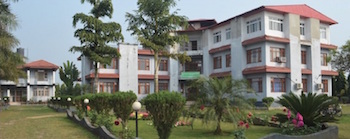Institute for Social and Environmental Research-Nepal (ISER-N)
ISER-N is a premier research and development institute. The institute adopts a three-pronged working approach that interlinks research, capacity building, and policy and program interventions as part of its effort to turn knowledge into practice.

Bharatpur Sub-Metropolitan City, Ward No. 19
Fulbari, Chitwan
Nepal
Tel: +977-56-591054/56-592406/56-592407
E-mail: iser.nepal@outlook.com Web: www.isernepal.org.np
Program in Society, Population, and Environment (SPE)
The program in Society, Population, and Environment (SPE) focuses on social change and social issues worldwide, with long-term programs of research in both North America and South Asia.
The SPE program is a component of two units within the University of Michigan's Institute for Social Research: the Population Studies Center and the Survey Research Center.

Population Studies Center
Institute for Social Research
University of Michigan 426 Thompson Street
Ann Arbor, MI 48106-1248
USA
